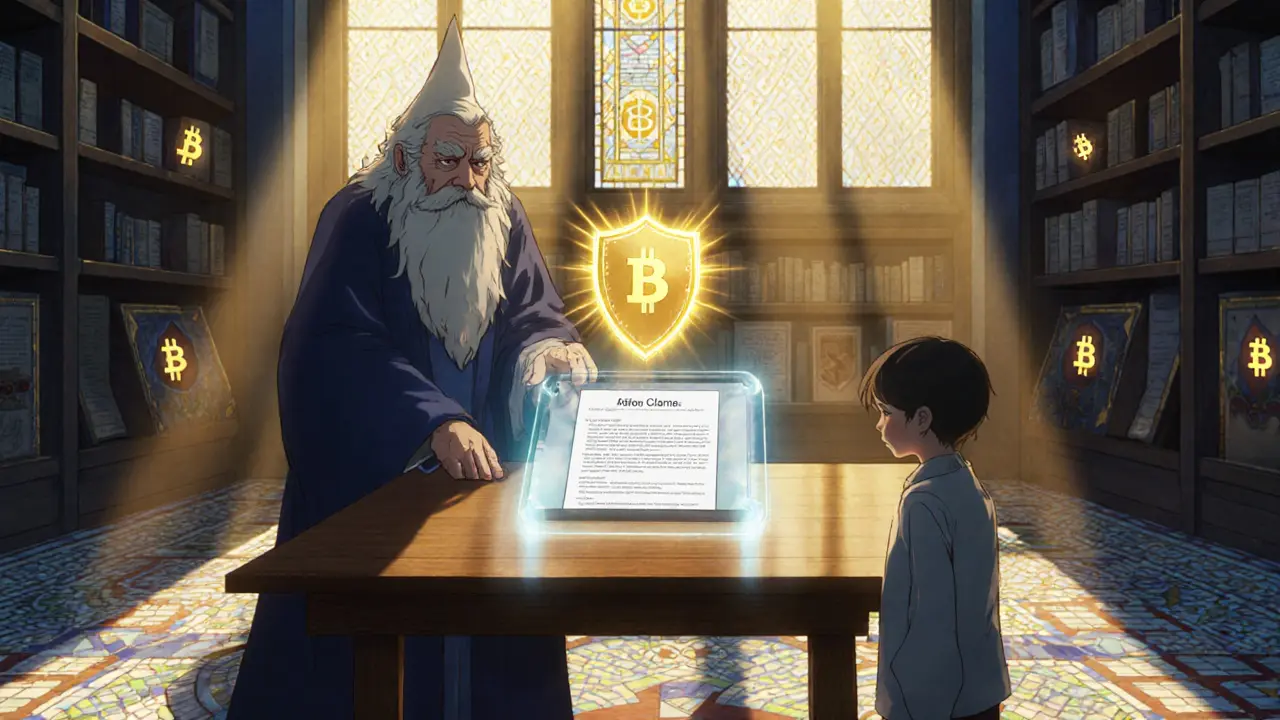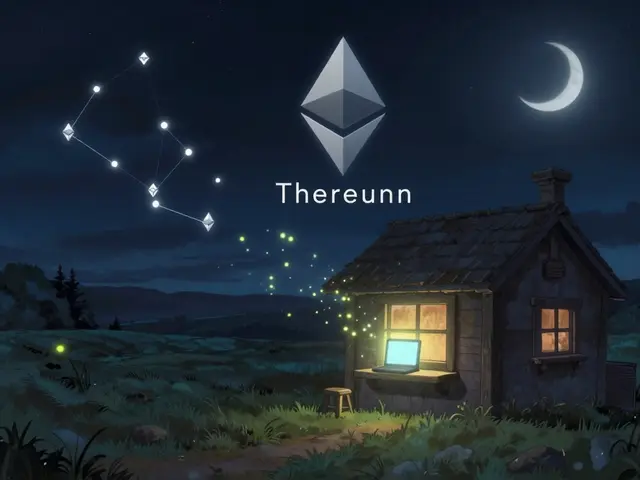Airdrop Verification Checker
Check Your Airdrop Claim
Use this tool to verify if a potential airdrop claim is legitimate based on CoinMarketCap's official verification standards.
Check your airdrop claim by filling out the form above. The tool will analyze the key red flags mentioned in the article.
You've probably seen posts promising a massive Frutti Dino airdrop tied to CoinMarketCap and wondered if it's legit. The buzz sounds exciting, but the reality is far less glamorous - most of these claims turn out to be scams that prey on eager crypto fans.
What is Frutti Dino (FDT)?
Frutti Dino (FDT) is a blockchain‑based NFT gaming project launched in 2022, featuring dinosaur characters that battle mutated foes in a play‑to‑earn ecosystem. The token is listed on CoinMarketCap under ID 19639 with a contract address 0x3a59...f2fF64, but its market data shows zero trading volume and a reported price of $0, signalling a virtually dead market.
The alleged FDT x CMC airdrop - what people are saying
Social media threads, Reddit posts, and Telegram groups started circulating a story that CoinMarketCap would distribute a free batch of FDT tokens to eligible holders. Some screenshots even mimicked the look of the official CMC site, promising users only need to connect their wallets to claim the airdrop.
Why the airdrop is almost certainly fake
Several red flags make this claim dubious:
- No official announcement on the CoinMarketCap blog or Twitter.
- The token shows zero liquidity; a genuine airdrop would require a working market to distribute tokens.
- Circulating supply (73.98 M) is dramatically lower than total supply (≈993 M), a mismatch often used to create hype.
- Only 0.09 % of the total supply was ever sold in the 2022 IEO, leaving the bulk of tokens unaccounted for.
When you cross‑check these points against official data from CoinMarketCap and CryptoRank, none of the usual airdrop documentation-contract address, eligibility rules, or verification steps-appears.
How to verify a legitimate CoinMarketCap airdrop
CoinMarketCap follows a strict five‑step process for any official airdrop:
- Announcement on the official CMC blog (blog.coinmarketcap.com) with a CMC domain URL.
- Verification through the CoinMarketCap Wallet app or an on‑chain transaction from a verified CMC contract.
- No request for private keys, seed phrases, or wallet passwords.
- Distribution occurs via the CMC integrated wallet, not through external sites.
- Public incident report on status.coinmarketcap.com if anything goes wrong.
If any of these steps are missing, the airdrop is likely a phishing attempt.

Legitimate vs. fake airdrop - a quick comparison
| Criteria | Legitimate CMC Airdrop | Fake "FDT CMC" Airdrop |
|---|---|---|
| Official announcement | Published on CMC blog with verified URL | Only on unofficial Telegram or copy‑cat websites |
| Contract verification | Verified contract address listed on Etherscan and CMC | No public contract; often asks for wallet connection |
| Eligibility rules | Clear on‑chain criteria (e.g., holding X token before date Y) | Vague “join now” without specifics |
| Security checks | No private key or seed phrase requested | Requests wallet private info or signing malicious transactions |
| Community response | Positive feedback from verified CMC community | Numerous scam reports on Reddit, Trustpilot, and FTC warnings |
Expert analysis - what security firms are saying
CertiK’s 2025 Q3 DeFi Threat Report flags projects with zero volume and large supply discrepancies as “high‑risk airdrop vectors.” SlowMist researcher Michael Marcus highlighted that any airdrop claiming a partnership with CMC without a verified CMC Twitter handle should be treated as a scam. Chainalysis data shows that 92.7 % of “CMC airdrop” claims in Q3 2025 were phishing attempts. TokenSniffer and RugDoc both list the Frutti Dino contract as “suspicious” due to the lack of liquidity and opaque token allocation.
Community feedback - the ground truth
Reddit user u/CryptoSherlock99 posted evidence of a fake Frutti Dino airdrop site that harvested seed phrases, resulting in 47 wallet drains totaling 2.3 ETH within 72 hours. Telegram’s “Airdrop Alert Verification” channel (127 K members) issued a red alert on October 7 2025, labeling the FDT‑CMC claim 100 % fake. ScamSniffer’s Discord bot flagged 87 phishing domains impersonating the airdrop in the first two weeks of October.

Practical steps to protect yourself
If you encounter a “Frutti Dino airdrop” offer, follow this checklist:
- Search the CoinMarketCap blog for any announcement; if none, treat it as suspicious.
- Open the token contract on Etherscan; look for a verified contract badge and check token approvals.
- Never share your private key, seed phrase, or sign unknown transactions.
- Use the CoinMarketCap Wallet app for any official airdrop claims.
- Report phishing sites to the FTC (Warning Letter #FTC‑2025‑1894) and to CoinMarketCap’s security email.
Applying these steps can stop you from losing funds to scams that target low‑liquidity gaming tokens.
Broader context - why gaming token airdrop scams are booming
Chainalysis’ 2025 Crypto Crime Report notes that gaming token airdrop scams account for 34 % of all DeFi‑related fraud, with average losses of $1,200 per victim. The SEC’s recent enforcement action (Case No. 25‑cv‑8932) specifically targets projects falsely claiming exchange partnerships, many of which involve play‑to‑earn tokens like Frutti Dino. Binance’s new Airdrop Verification Protocol, launched on October 1 2025, has already blocked 287 fake domains-including several aimed at Frutti Dino holders-showing how quickly regulators and exchanges are reacting.
Key Takeaways
- There is no official Frutti Dino × CoinMarketCap airdrop; all evidence points to a scam.
- Zero trading volume, massive supply mismatch, and missing official announcements are strong red flags.
- Verify any airdrop through the official CMC blog, wallet app, and on‑chain contract.
- Use the checklist above to protect yourself from phishing and token‑drain attacks.
- Stay informed about broader gaming token fraud trends and regulatory updates.
Frequently Asked Questions
Is there any legitimate Frutti Dino airdrop happening right now?
No. As of October 2025, CoinMarketCap has not posted any official announcement regarding an FDT airdrop, and all online claims lack verification.
How can I check if a token contract is verified?
Visit Etherscan, search the contract address (e.g., 0x3a59…f2fF64 for FDT), and look for a green check‑mark indicating verification. Also review the token’s approval list for suspicious spending permissions.
What should I do if I’ve already connected my wallet to a fake airdrop site?
Immediately revoke all token approvals on Etherscan, move any remaining assets to a new wallet, and report the phishing URL to the FTC and CoinMarketCap’s security team.
Are there any legitimate airdrops for gaming tokens I can trust?
Projects like Illuvium (ILV) and Gods Unchained (GODS) have run transparent airdrops with clear eligibility rules, official blog posts, and on‑chain distribution through reputable exchanges.
Where can I find up‑to‑date information on CoinMarketCap airdrop policies?
Check the CoinMarketCap Help Center and the official blog for the latest airdrop verification guidelines. The status page (status.coinmarketcap.com) also lists any ongoing incidents.






Marina Campenni
October 18, 2025 AT 08:20 AMI’ve seen a lot of frustration from folks who fall for these fake airdrop promises, so it’s worth taking a moment to double‑check any claim. The red flags listed in the post – no official CMC blog post, zero liquidity, and vague eligibility – are solid warning signs. If you’re ever in doubt, look for the verified CMC announcement and never share your seed phrase. Staying cautious saves a lot of headaches later.
Irish Mae Lariosa
November 11, 2025 AT 14:40 PMThe article does a commendable job of dissecting the so‑called “Frutti Dino x CMC” airdrop, and I must emphasize that each point mentioned is backed by verifiable data, which is why the conclusion feels inevitable; the absence of an official CoinMarketCap blog entry alone should raise immediate suspicion, because reputable platforms never rely on rumor mills to disseminate critical distribution information, and this alone should prompt a thorough inspection of token approvals. Moreover, the token’s contract address lacks the verification tick on Etherscan, an omission that is rarely, if ever, an oversight for legitimate projects seeking community trust, and this alone should prompt a thorough inspection of token approvals. The supply discrepancy highlighted-a circulating supply of roughly 74 million versus a total supply nearing one billion-mirrors classic inflation tactics used to artificially inflate perceived value, thereby luring unsuspecting holders into a false sense of scarcity. In addition, the claim that merely connecting a wallet would suffice for an airdrop neglects the essential security step of signing a transaction that originates from a verified contract, a step that any legitimate airdrop would explicitly detail to avoid phishing. The post also references Chainalysis data indicating that over ninety‑two percent of “CMC airdrop” mentions this quarter were phishing attempts, reinforcing the statistical improbability of this being a genuine offer. Furthermore, the cited FTC warning letter number provides a concrete reference point for victims to verify the legitimacy of the report, and its existence underscores the serious legal attention this scam has attracted. The inclusion of specific community sources-such as the “Airdrop Alert Verification” Telegram channel and the ScamSniffer Discord bot-adds practical avenues for real‑time validation, which savvy users should leverage before taking any action. It is also worth noting that the supposed “zero‑price” valuation on CoinMarketCap is not a typographical error but a symptom of a market that essentially has no depth, making any token distribution mechanisms moot. The fact that the project’s IEO sold only a minuscule fraction of its total supply further emphasizes the lack of substantive backing, which in turn weakens any claim of a meaningful airdrop. Given these multiple layers of evidence, the logical deduction is straightforward: the “Frutti Dino” airdrop claim is a sophisticated phishing scheme designed to harvest private keys under the guise of a lucrative free distribution. Consequently, any individual who encounters such a claim should immediately suspend interaction, revoke all token approvals, and migrate assets to a fresh wallet, as the post rightly advises. Lastly, the broader context provided about gaming token fraud rising to 34 percent of DeFi‑related scams situates this specific incident within a larger pattern, reminding us that vigilance must be continuously applied across the ecosystem. In summary, the convergence of missing official announcements, unverified contracts, supply anomalies, and independent security reports creates an unmistakable red flag that should deter any participation in the alleged airdrop.
Nick O'Connor
December 5, 2025 AT 22:00 PMWow, this is a classic case of phishing, isn’t it?; the lack of a CMC blog post, the zero liquidity, and the shady contract address-all point to a scam,; plus, the community reports on Reddit and Telegram reinforce the warning,; so, if you see a “connect wallet” prompt for FDT, walk away,; don’t share your seed phrase, and always double‑check the official sources.
Deborah de Beurs
December 30, 2025 AT 05:20 AMListen up, anyone still eyeing that “free FDT” is basically signing up for a heist – the scammers are pumping colorful hype to yank your private keys, and they don’t give a damn about your losses. They masquerade as legit, but the whole thing reeks of fraud, and the only thing you’ll get is an empty wallet. Cut the nonsense, verify through CMC’s official channels, and stop feeding these crooks.
Sara Stewart
January 23, 2026 AT 12:40 PMHey folks, just to add some technical context – the airdrop’s absence of a verified contract signature means the token transfer would be an off‑chain spoof, which our wallets flag as malicious. In the crypto‑security lexicon, this is a classic “phishing‑as‑a‑service” attack, leveraging social engineering vectors to extract seed phrases. So, keep your hardware wallet offline, use the official CMC wallet app for any legit drops, and stay on top of the DEX liquidity pools to spot genuine token movements.
Laura Hoch
February 16, 2026 AT 20:00 PMWhen we consider the allure of “free” in the crypto space, we encounter a deeper question about trust: are we handing over our agency to opaque entities in exchange for speculative promises? The Frutti Dino episode illustrates how the myth of an effortless bounty can blind us to the underlying power dynamics, where every unverified claim is a reminder that security is a collective responsibility. By cultivating a habit of critical inquiry, we transform passive observers into active custodians of our digital assets, thus reshaping the narrative from victimhood to empowerment.